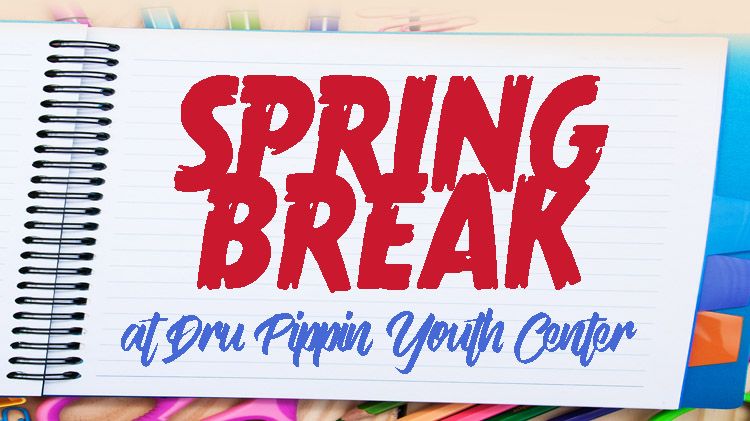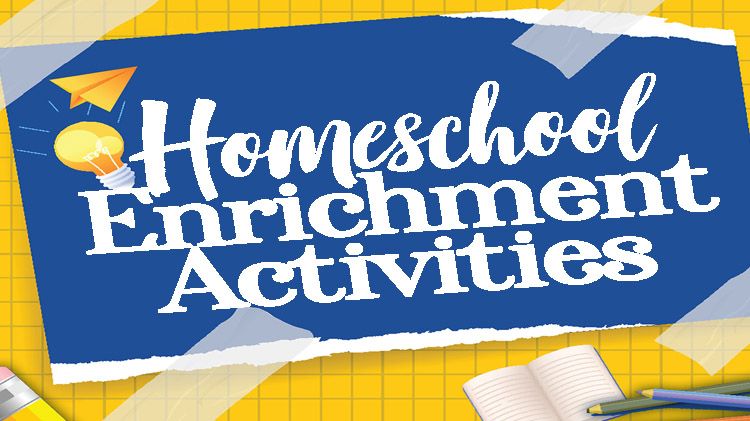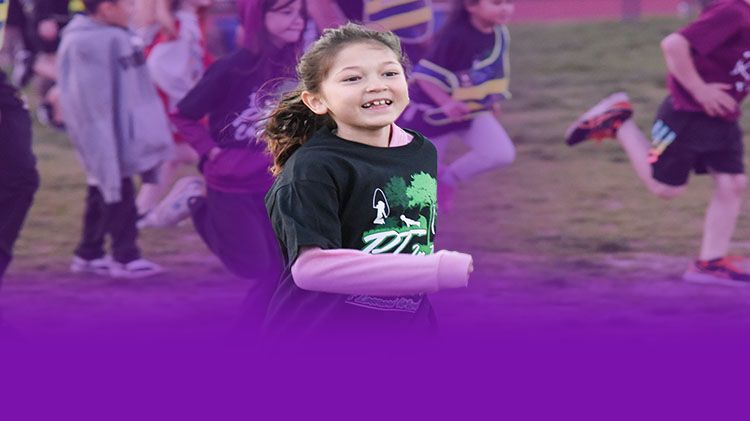- Helping schools understand the challenges military Families face
- Informing parents about local school policies
- Giving Families information about local schools, graduation requirements, after school programs, youth sponsorship and homeschooling
- Connecting units and schools through partnership initiatives
- Conducting workshops to help parents navigate educational transition and advocate for their children
- Providing an array of resources that benefit military youth and improve school experiences
- When Do I Need a SLO?
-
Getting ready to move:
- Information about your upcoming duty station and educational options in your new community
- Connection to a youth sponsor who can answer your child's questions from a youth's perspective
- Assistance with the steps to prepare for your children's departure from their current schools
Once you arrive:
- Assistance with school registration and transition
- Help with questions about compliance and solutions regarding the Interstate Compact on Educational Opportunity for Military Children
- Two way communication between the school and parent
- Connection with homeschool co-ops or support groups
During your assignment:
- Answers to your questions about schools, homeschooling, special education, scholarships, transitions and more
- Parent education opportunities about college and career readiness, preparing for transition and the Interstate Compact
To ease the transition, contact your SLO as soon as you get orders.
- Finding a School
-
Finding a new school and registering your child can be confusing.
We can help.
Our SLOs give you information on local schools so you can find the best fit for you and your family. They can also help you with everything you need to register – and can answer other questions, too. Contact our office and to get more detailed information.
Research-based Characteristics of Quality Schools
Most schools share fundamental characteristics that prepare students for the future. Research shows that the most effective schools are more alike than they are different. Here is some information about what to look for in quality schools:
- Five Key Features of Effective Schools
- The United States Department of Education provides detailed information about choosing a school and offers a great number of resources to help you make an informed decision when choosing a school for your child.
Finding a new school and registering your child can be confusing.
We can help.
Our SLOs can provide you with information on the local school districts so that you can find the best fits for you and your family. They can also help you with everything you need to register- and can answer other questions too.
All public school buildings located on post, in the city of St. Robert and within the Waynesville district lines are part of the Waynesville R-VI School District.
Additional school districts surrounding Fort Leonard Wood:
Phelps County R-III School District
Rolla Public Schools School District
Local Private Schools:
Maranatha Baptist Academy (Kindergarten-12th grade)
Westside Christian Academy (Pre-K-5th grade)
Missouri school building report cards
How old must my child be in order to enroll in kindergarten?
According to Missouri law, a child is eligible for admission to kindergarten if he or she reaches the age of five before the first day of August or if the child is a military dependent who has successfully completed a (state) accredited pre-kindergarten program or has attended a (state) accredited kindergarten program in another state.
How old must my child be in order to enroll in first grade?
To be eligible to enter first grade, children must reach the age of six prior to August 1, or if the child is a military dependent who has successfully completed a (state) accredited kindergarten program in another state. Any child who has successfully completed kindergarten in an out-of-state school accredited by the state, or a Missouri accredited urban or metropolitan school, will meet age requirements for entrance into grade one.
What documents will I need in order to enroll my child in school?
Documents needed to enroll:
- registered birth certificate (see Kindergarten and First Grade Entry Requirements)
- shot record (see Immunizations)
- last grade card (if applicable)
- transfer sheet (if provided)
- any other information from previous school
High school graduations requirements (website):
Missouri Department of Elementary and Secondary Education (DESE)
- Youth Sponsorship
-
Does your child have 101 questions about your next duty station? Let a youth sponsor answer them!
Youth sponsors connect with children before arrival at a new duty station, provide them with information about their new communities and answer questions from a youth perspective- while being guided by adults in the CYS youth program and the schools.
Once you arrive, a youth sponsor will meet your child and can arrange community and school tours.
If you are preparing for a PCS move, contact your SLO today to sign up for a youth sponsor.
usarmy.leonardwood.id-training.mbx.usag-flw-dfmwr-slo@army.mil
- Special Education Information
-
If you have a child with special needs, we can help you find the resources available in your school district. We can also help you connect with your local installation's Exceptional Family Member Program (EFMP) office.
The EFMP is a mandatory enrollment program that works with other military and civilian agencies to provide comprehensive, coordinated, community support in areas such as housing, medical, educational and personal services to Families with special needs.
 EFMP Contact Information: EFMP Manager +1 (573)596-0212 located at ACS, 486 Replacement Avenue, Fort Leonard Wood, MO 65473.
EFMP Contact Information: EFMP Manager +1 (573)596-0212 located at ACS, 486 Replacement Avenue, Fort Leonard Wood, MO 65473.Missouri Department of Elementary and Secondary Education - Special Education Services
Capable Kids and Families® program located in Rolla supports families who have a child with a developmental delay or disability. It provides professional and family resource materials, a playroom with adaptive equipment, networking meetings and loans developmental therapy equipment that is delivered to family homes.
- Additional References & Resources for Special Education
-
Highly mobile children are entitled to an expedited process, including: a) evaluations in 30 days instead of 60 days, b) removed delays due to school district schedules for families moving during incomplete screenings, c) continued Extended School Year for students moving in the summer. The United States Department of Education, Office of Special Education and Rehabilitative Services outlines these requirements for State Directors of Special Education.
The Center for Parent Information and Resources offers education, acronyms, tools, webinars and a directory of local Parent and Information Training Centers to help parents advocate for their children. The center focuses on proactive support and personal accountability.
Military OneSource has a range of resources to help with caring for a family member with special needs including education, health care, legal, financial points of contact, EFMP, School Liaisons, etc.
Military Community & Family Policy Office of Special Needs provides a directory of age-specific resources and States-at-a-Glance for localized special education resources and information.
- Home School
-
Home schooling has become mainstream and widely-used. We offer resources and information to help you provide quality home-based education.
Home School Legal Defense Association provides information on home school law, and general support and information about homeschooling.
Home Schooling has become mainstream and widely used. We offer resources and information to help you provide quality home-based education. Home School Legal Defense Association provides information on home school law, and general support and information about homeschooling.
Missouri laws and home schooling resources are also available at the School Support Services office.
- Transition Support
-
We understand that military transitions for children include much more than school plans and enrollment. We have a number of resources to help make your move as easy as possible for the kids, including:
Military Kids Connect provides online age-appropriate resources to help parents, teachers and children cope with the unique challenges of military life.
The Interstate Compact on Educational Opportunity for Military Children (MIC3) addresses key transition issues military Families experience, including enrollment, placement, attendance, eligibility and graduation. All 50 states have signed the compact and are in varying stages of implementation and/or compliance. The compact applies to children of Active Duty service members, National Guard and Reserve members on active duty orders and members or veterans who are medically discharged or retired within past year.
If you feel that you have an issue that the Compact can help address talk with your SLO. The SLO is able to assist by connecting with both the sending and receiving school to assist in resolving the issue. If it is not possible to resolve the issue locally, the SLO will help you work with the state commission, and if needed, the national office.
Military Youth on the Move the Department of Defense designed Military Youth on the Move as a one-stop shop for parents and students with moves and deployment.
- Post Secondary Support
-
Our support doesn't end with elementary education. If you have children preparing for academic life after high school, we can help you find information about testing opportunities, scholarships and military-specific resources that can help you plan.
The US Department of Veteran's Affairs provides Military-Specific and Government Academic Support information: G.I. Bill
Transferability of Educational Benefits: https://www.dmdc.osd.mil are very specific. The Defense Manpower Data Center, through MilConnect will guide you through the transfer process and your eligibility to do so. Speak with an Education Counselor prior to making this election in order to ensure you understand the benefit.
In-State Tuition Programs for Military: Service members on active duty for a period of more than 30 days and their dependents are eligible to receive in-state tuition at many public colleges and universities in the state where they reside or are permanently stationed. An enrolled dependent may pay in-state tuition as long as he or she remains continuously enrolled at the institution, even if the service member is reassigned outside of the state. Regulations outlined in the Higher Education Opportunity Act, 2008 (P.L 110 - 135) and the Higher Education Act of 1965.
Let us help you plan for your child's college and career readiness:
College and Career Readiness and Success
- Resources
-
Here are some additional web resources to assist you with your child's education:
Academic Resources:
Tutor.com for U.S. Military Families makes live tutors available online 24/7 to help with more than 40 core subjects and standardized test preparation.
Homework Support: Army Child & Youth Services provides Homework Labs in before/after school programs for elementary students at the School Age Center, and for middle and high school students at the Youth Center.
Khan Academy: A personalized learning resource for all ages Khan Academy offers practice exercises, instructional videos, and a personalized learning dashboard that empower learners to study at their own pace in and outside of the classroom. We tackle math, science, computer programming, history, art history, economics, SAT and more.
Support/Resilience Resources:
School Support Services include information about other programs you can use for support and resilience-related issues.
Military Family Life Counselors (MFLCs) are available to meet in-person on or off the military installation. The free nonmedical sessions are anonymous and may occur in individual, couple, family or group settings. Child Behavioral Specialists are located on the installation in Child & Youth Services programs, and in highly impacted schools located on and off the installation.
Military OneSource has access to free nonmedical counseling that is anonymous and available online, on the phone or in person. Twelve free sessions may occur in individual, couple, family or group settings.
Ready and Resilient Workshops for youth and educators are offered through the SLO and Youth Center programs. These workshops provide educators and students with the same tools Soldiers receive through their Ready and Resilient training. As Master Resilience Trainers SLOs strive to develop a common language around resilience for educators, youth and their parents.
For information on how to attend a class contact your SLO at:
usarmy.leonardwood.id-training.mbx.usag-flw-dfmwr-slo@army.mil
College and Career Readiness Resources:
College and career readiness includes the content knowledge, skills and habits that students must have to be successful in postsecondary education. It also includes training that leads to a sustaining career. A student who is ready for college and career can qualify for and succeed in entry-level, credit-bearing college courses without needing remedial or developmental coursework. These links have tools that will help you plan for your child's college and career readiness:
Army Educational Outreach Program (AEOP) provides STEM opportunities for military connected youth. The website provides information about AEOP programs available to youth, scholarship opportunities, news, and ways to get involved.
Military.com Scholarship Finder: Military.com provides a search engine to help find money for your child's higher education needs. Search over 1000 scholarships intended for military youth.
School Support Services Scholarship Database lists crowd sourced scholarships for military connected youth. Scholarships are listed in alphabetical order and provide information on deadlines and qualifications.
Free SAT/ACT Preparation Materials
High School Equivalency Test Registration Information
- Frequently Asked Questions
-
Are there DoD schools located on Fort Leonard Wood?
There are no DoD schools located on Fort Leonard Wood.
All public school buildings located on post, in the city of St. Robert, and within the city of Waynesville district lines are part of the Waynesville R-VI School District. www.waynesville.k12.mo.us
Which school will my child attend?
There are four schools located on post:
Williams Early Childhood Center serves children from birth to age 5, and provides extra support for those with special needs in facilities designed for pre-kindergarten children.
Partridge Elementary, Thayer Elementary, and Wood Elementary are all K-5 elementary schools located within the various post housing areas. Students must reside on-post in order to attend one of these elementary buildings. During the academic year, transportation is provided to the School Age Center.
Schools located off-post:
East Elementary (grades K-5) - all students, grades K-5, living off-post and within the Waynesville School District will attend East Elementary School. Bus transportation is available for all students to include to and from the School Age Center.
Freedom Elementary (grades K-5) - all students, grades K-5, living off-post and within the Waynesville School District will attend Freedom Elementary School. Bus transportation is available for all students to include to and from the School Age Center.
6th Grade Center (grade 6) - all students, grade 6, living on-and off-post within the Waynesville School District will attend the 6th Grade Center. Bus transportation is available for all students to include to the Middle School/Teen Center after school.
Waynesville Middle School (grades 7-8) - all students, grades 7-8, living on-and off-post within the Waynesville School District will attend Waynesville Middle School. Bus transportation is available for all students to include to the Middle School/Teen Center after school.
Waynesville High School (grades 9-12) - all students, grades 9-12, living on-and off-post and within the Waynesville School District will attend Waynesville High School. Bus transportation is available for all students to include to the Middle School/Teen Center after school.
Are students required to wear uniforms to school?
None of the public school systems surrounding Fort Leonard Wood require students to wear uniforms.
What options are available for before and after school care?
Child & Youth Services (CYS) offers structured and recreational activities to enhance the development of children in kindergarten-5th grade. Breakfast and nutritional snacks are served daily. Transportation is provided to and from designated schools (on and off post) Monday-Friday 0530-0830 and 1530-1730 during the academic year only. Registration with CYS is required in order to participate in before and after school care at Parent and Outreach Services.
What after school/enrichment activities are available?
Middle School Teen Center (MST)
Where can I find information about Missouri teen driving requirements?
What is a Unique Military Child Identifier?
Numerous states have enacted a voluntary report-only self-identification of military children within their public school systems. This data collection would allow monitoring of critical elements such as academic progress and proficiency, special and advanced program participation, mobility and dropout rates. Requirements and method of collection vary from state to state.
Many local school districts across the United States include within their boundaries parcels of land that are owned by the Federal Government. They must provide a quality education to the children living on the Indian and other Federal lands while sometimes operating with less local revenue than is available to other school districts, because the Federal property is exempt from local property taxes.
Congress has provided financial assistance to these local school districts through the Impact Aid Program. Each year Military members and Federal employees complete a Survey Form. The amount of Impact Aid - or federal assistance - received is determined by the number of eligible parents/guardians who complete the survey form. It partially compensates school districts affected by federal activity for local tax losses resulting from tax-free federal installations.
Non-DoD School Programs (NDSP)
At overseas/international locations where there is not a Department of Defense Education Activity (DoDEA) school, NDSP supports a variety of options for your children, ranging from public or private schools to homeschool programs. NDSP has a team of education specialists who are available to provide transition and educational support and coordination for all students, including those with special needs. Sponsors are encouraged to contact the NDSP as soon as possible for specific school information.
School Support Services provides Army school-aged youth with educational opportunities, resources and information necessary to achieve academic success. A branch of Child & Youth Services (CYS), School Support Services includes the School Liasion Officer (SLO) who helps schools, installations, and families work together for student achievement.
SLOs are your best support in the area of education, schools and military transitions. SLOs are knowledgeable in current education news and policies. They act as the conduit between the student community- including local public school districts, private schools and home school Families- and the installation.
How do they do it? By...
























